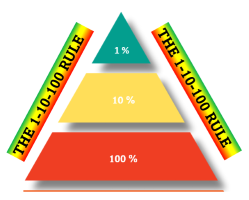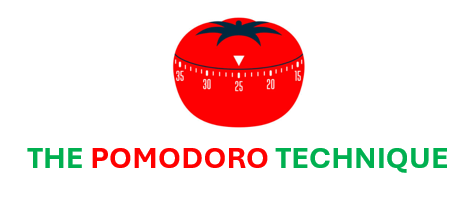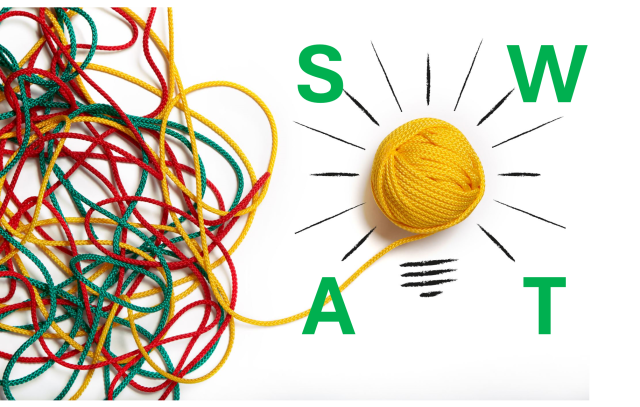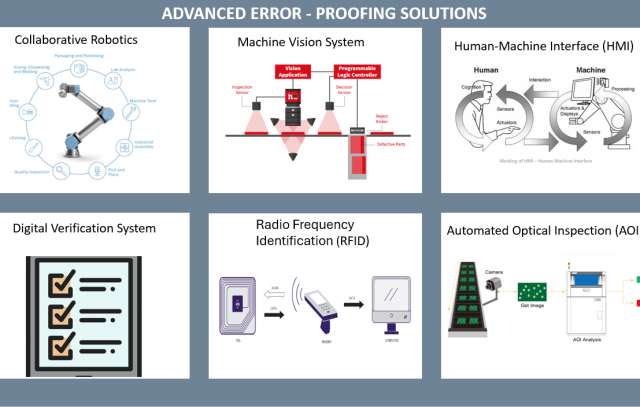The 1-10-100 rule explains what it costs if we let small problems grow into big challenges

The 1-10-100 rule is a principle used in quality management that illustrates the escalating costs of fixing defects at different stages of a process. The rule emphasizes that the earlier a problem is detected, the less costly it is to fix. Here’s what each number represents: In the context of the 1-10-100 rule, the numbers ... The 1-10-100 rule explains what it costs if we let small problems grow into big challenges
Have we really learned the Lessons Learned?

„Lessons learned” refers to the knowledge or insights gained from past experiences, especially from challenges, mistakes, or successes. In various contexts—whether in personal growth, business, projects, or education—it involves reflecting on what worked, what didn’t, and how things can be done better in the future. These insights help individuals and teams improve their processes, ... Have we really learned the Lessons Learned?
How can the Pomodoro technique help us?

The Pomodoro Technique is a time management method developed by Francesco Cirillo in the late 1980s. The idea is based on a tomato-shaped kitchen timer, which, after being set, signals when the cooking time has passed. Using this, he developed a technique that is one of the most effective methods for avoiding procrastination. According to ... How can the Pomodoro technique help us?
What is SWAT analysis?

So, what is SWAT? SWAT analysis is a framework for identifying and analyzing an organization’s strengths, weaknesses, assumptions and truths. SWAT: Strengths – Weaknesses – Assumptions – Truths SWAT analysis is a tool used to challenge assumptions, clarify truths, and better understand both internal and external factors that affect a situation or decision-making process. It’s especially ... What is SWAT analysis?
How to develop a quality mindset?

If we want to define what a quality mindset is, it cannot really be described in just a few words or sentences because it contains many things. When we think about our work, it may come to mind that we approach the task to be done or the area that belongs to us as if ... How to develop a quality mindset?
Are you busy or effective?

You’ve probably experienced it too, that no matter how determinedly you work on something and invest a lot of time into it, you still don’t get to where you want to be. And then you ask yourself the question: What am I doing wrong? Well, the situation you’re describing is often referred to as being ... Are you busy or effective?
Key steps and benefits of Layered Process Audit

The Layered Process Audit (LPA) is a structured and systematic approach used in manufacturing and production environments to ensure that processes are followed consistently and that quality standards are maintained. The audits are typically “layered” in the sense that different people (e.g., operators, supervisors, managers) perform audits at different levels within the organization, ensuring a ... Key steps and benefits of Layered Process Audit
The 3-to-1 Positivity Ratio

How many positive feedbacks do you need to receive in order to accept one negative feedback? In order to be satisfied in our workplace, the ratio of positive to negative feedback cannot be worse than three to one. There is a lot of research on this subject, and there is no difference between them. Three ... The 3-to-1 Positivity Ratio
Advanced Error-Proofing and Error-Proofing solutions

The General Concept of Error-Proofing Error proofing refers to the overall practice or methodology used to prevent mistakes or defects from occurring in any system, process, or product. It can include designing systems, procedures, tools, or technologies that reduce the possibility of human error. Error proofing can be applied to various industries, processes, and even ... Advanced Error-Proofing and Error-Proofing solutions
How a healthy and toxic work environment affects us

In this article, I have gathered the action patterns that healthy and toxic work environments create for us. Based on this, I will discuss the effects these patterns have on us. I use the term “patterns” because I want to highlight the habits formed, as a single negative experience occurring once in a while doesn’t ... How a healthy and toxic work environment affects us